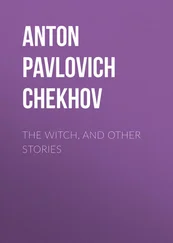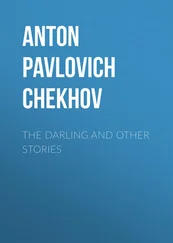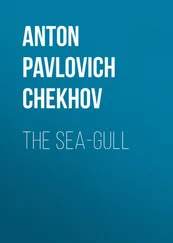Anton Chekhov - Swan Song
Здесь есть возможность читать онлайн «Anton Chekhov - Swan Song» — ознакомительный отрывок электронной книги совершенно бесплатно, а после прочтения отрывка купить полную версию. В некоторых случаях можно слушать аудио, скачать через торрент в формате fb2 и присутствует краткое содержание. Жанр: Старинная литература, Русская классическая проза, на английском языке. Описание произведения, (предисловие) а так же отзывы посетителей доступны на портале библиотеки ЛибКат.
- Название:Swan Song
- Автор:
- Жанр:
- Год:неизвестен
- ISBN:нет данных
- Рейтинг книги:4 / 5. Голосов: 1
-
Избранное:Добавить в избранное
- Отзывы:
-
Ваша оценка:
- 80
- 1
- 2
- 3
- 4
- 5
Swan Song: краткое содержание, описание и аннотация
Предлагаем к чтению аннотацию, описание, краткое содержание или предисловие (зависит от того, что написал сам автор книги «Swan Song»). Если вы не нашли необходимую информацию о книге — напишите в комментариях, мы постараемся отыскать её.
Swan Song — читать онлайн ознакомительный отрывок
Ниже представлен текст книги, разбитый по страницам. Система сохранения места последней прочитанной страницы, позволяет с удобством читать онлайн бесплатно книгу «Swan Song», без необходимости каждый раз заново искать на чём Вы остановились. Поставьте закладку, и сможете в любой момент перейти на страницу, на которой закончили чтение.
Интервал:
Закладка:
Anton Pavlovich Chekhov
Swan Song
THE last years of the nineteenth century were for Russia tinged with doubt and gloom. The high-tide of vitality that had risen during the Turkish war ebbed in the early eighties, leaving behind it a dead level of apathy which lasted until life was again quickened by the high interests of the Revolution. During these grey years the lonely country and stagnant provincial towns of Russia buried a peasantry which was enslaved by want and toil, and an educated upper class which was enslaved by idleness and tedium. Most of the “Intellectuals,” with no outlet for their energies, were content to forget their ennui in vodka and card-playing; only the more idealistic gasped for air in the stifling atmosphere, crying out in despair against life as they saw it, and looking forward with a pathetic hope to happiness for humanity in “two or three hundred years.” It is the inevitable tragedy of their existence, and the pitiful humour of their surroundings, that are portrayed with such insight and sympathy by Anton Tchekoff who is, perhaps, of modern writers, the dearest to the Russian people.
Anton Tchekoff was born in the old Black Sea port of Taganrog on January 17, 1860. His grandfather had been a serf; his father married a merchant’s daughter and settled in Taganrog, where, during Anton’s boyhood, he carried on a small and unsuccessful trade in provisions. The young Tchekoff was soon impressed into the services of the large, poverty-stricken family, and he spoke regretfully in after years of his hard-worked childhood. But he was obedient and good-natured, and worked cheerfully in his father’s shop, closely observing the idlers that assembled there, and gathering the drollest stories, which he would afterward whisper in class to his laughing schoolfellows. Many were the punishments which he incurred by this habit, which was incorrigible.
His grandfather had now become manager of an estate near Taganrog, in the wild steppe country of the Don Cossacks, and here the boy spent his summers, fishing in the river, and roving about the countryside as brown as a gipsy, sowing the seeds of that love for nature which he retained all his life. His evenings he liked best to spend in the kitchen of the master’s house among the work people and peasants who gathered there, taking part in their games, and setting them all laughing by his witty and telling observations.
When Tchekoff was about fourteen, his father moved the family to Moscow, leaving Anton in Taganrog, and now, relieved of work in the shop, his progress at school became remarkable. At seventeen he wrote a long tragedy, which was afterward destroyed, and he already showed flashes of the wit that was soon to blaze into genius.
He graduated from the high school at Taganrog with every honour, entered the University of Moscow as a student of medicine, and threw himself headlong into a double life of student and author, in the attempt to help his struggling family.
His first story appeared in a Moscow paper in 1880, and after some difficulty he secured a position connected with several of the smaller periodicals, for which, during his student years, he poured forth a succession of short stories and sketches of Russian life with incredible rapidity. He wrote, he tells us, during every spare minute, in crowded rooms where there was “no light and less air,” and never spent more than a day on any one story. He also wrote at this time a very stirring blood-and-thunder play which was suppressed by the censor, and the fate of which is not known.
His audience demanded laughter above all things, and, with his deep sense of the ridiculous, Tchekoff asked nothing better. His stories, though often based on themes profoundly tragic, are penetrated by the light and subtle satire that has won him his reputation as a great humourist. But though there was always a smile on his lips, it was a tender one, and his sympathy with suffering often brought his laughter near to tears.
This delicate and original genius was at first subjected to harsh criticism, which Tchekoff felt keenly, and Trigorin’s description in “The Sea-Gull” of the trials of a young author is a cry from Tchekoff’s own soul. A passionate enemy of all lies and oppression, he already foreshadows in these early writings the protest against conventions and rules, which he afterward put into Treplieff’s reply to Sorin in “The Sea-Gull”: “Let us have new forms, or else nothing at all.”
In 1884 he took his degree as doctor of medicine, and decided to practise, although his writing had by now taken on a professional character. He always gave his calling a high place, and the doctors in his works are drawn with affection and understanding. If any one spoke slightingly of doctors in his presence, he would exclaim: “Stop! You don’t know what country doctors do for the people!”
Tchekoff fully realised later the influence which his profession had exercised on his literary work, and sometimes regretted the too vivid insight it gave him, but, on the other hand, he was able to write: “Only a doctor can know what value my knowledge of science has been to me,” and “It seems to me that as a doctor I have described the sicknesses of the soul correctly.” For instance, Trigorin’s analysis in “The Sea-Gull” of the state of mind of an author has well been called “artistic diagnosis.”
The young doctor-writer is described at this time as modest and grave, with flashes of brilliant gaiety. A son of the people, there was in his face an expression that recalled the simple-hearted village lad; his eyes were blue, his glance full of intelligence and kindness, and his manners unaffected and simple. He was an untiring worker, and between his patients and his desk he led a life of ceaseless activity. His restless mind was dominated by a passion of energy and he thought continually and vividly. Often, while jesting and talking, he would seem suddenly to plunge into himself, and his look would grow fixed and deep, as if he were contemplating something important and strange. Then he would ask some unexpected question, which showed how far his mind had roamed.
Success was now rapidly overtaking the young author; his first collection of stories appeared in 1887, another one in the same year had immediate success, and both went through many editions; but, at the same time, the shadows that darkened his later works began to creep over his light-hearted humour.
His impressionable mind began to take on the grey tinge of his time, but much of his sadness may also be attributed to his ever-increasing ill health.
Weary and with an obstinate cough, he went south in 1888, took a little cottage on the banks of a little river “abounding in fish and crabs,” and surrendered himself to his touching love for nature, happy in his passion for fishing, in the quiet of the country, and in the music and gaiety of the peasants. “One would gladly sell one’s soul,” he writes, “for the pleasure of seeing the warm evening sky, and the streams and pools reflecting the darkly mournful sunset.” He described visits to his country neighbours and long drives in gay company, during which, he says, “we ate every half hour, and laughed to the verge of colic.”
Конец ознакомительного фрагмента.
Текст предоставлен ООО «ЛитРес».
Прочитайте эту книгу целиком, купив полную легальную версию на ЛитРес.
Безопасно оплатить книгу можно банковской картой Visa, MasterCard, Maestro, со счета мобильного телефона, с платежного терминала, в салоне МТС или Связной, через PayPal, WebMoney, Яндекс.Деньги, QIWI Кошелек, бонусными картами или другим удобным Вам способом.
Интервал:
Закладка:
Похожие книги на «Swan Song»
Представляем Вашему вниманию похожие книги на «Swan Song» списком для выбора. Мы отобрали схожую по названию и смыслу литературу в надежде предоставить читателям больше вариантов отыскать новые, интересные, ещё непрочитанные произведения.
Обсуждение, отзывы о книге «Swan Song» и просто собственные мнения читателей. Оставьте ваши комментарии, напишите, что Вы думаете о произведении, его смысле или главных героях. Укажите что конкретно понравилось, а что нет, и почему Вы так считаете.












